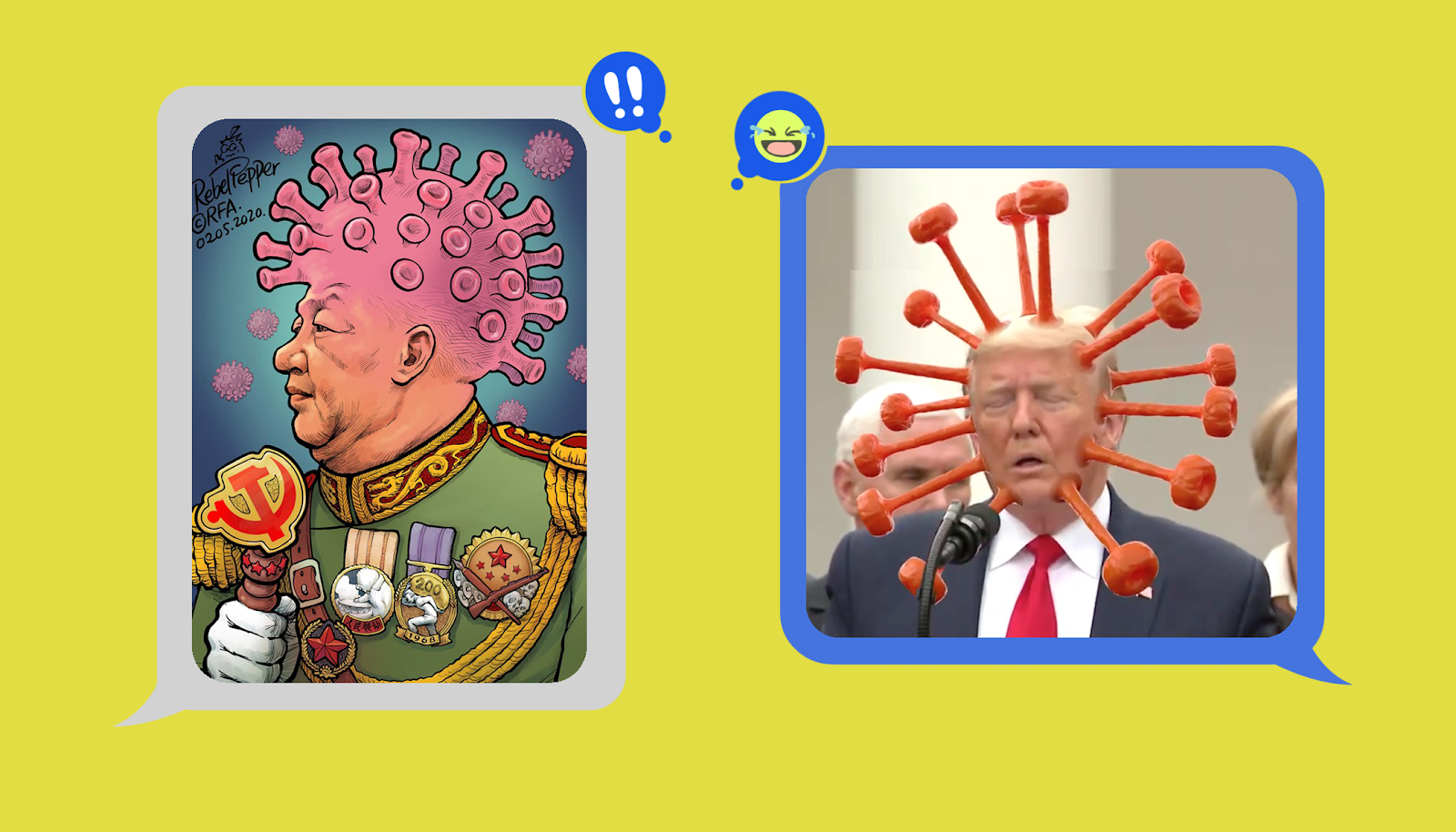Trump and Beijing de-escalate rhetoric, but the blame game is not over


The China Project illustration by Derek Zheng
Over the last two weeks, Chinese officials and various American politicians, including the president, have engaged in a blame game over COVID-19, with senior diplomats from Beijing spreading conspiracy theories that the coronavirus originated in the U.S. or Italy, and Donald Trump talking about the “China virus.”
It’s not just government officials who are blaming the leaders of both countries for the pandemic: The image above includes a cartoon by exiled Chinese cartoonist Rebel Pepper showing Xí Jìnpíng 习近平 as a coronavirus, and a screenshot from an American Twitter account.
However, both governments appear to have de-escalated their rhetoric as of late last week. Chinese ambassador to the U.S. Cuī Tiānkǎi 崔天凯 labeled conspiracy theories about COVID-19 originating within a U.S. military lab as “crazy.” Trump backtracked on his use of the phrase “Chinese virus” in a pair of tweets that emphasized the need to “totally protect our Asian American community.” He later reiterated that he doesn’t intend to use the term “Chinese virus” again, per NBC.
Then Trump made a phone call to Xi Jinping on March 26, and afterward sent an amicable tweet about “a very good conversation.” However, the rest of the Trump administration continues to take a less conciliatory tack toward China, judging by these stories:
- U.S. officials push for expelling suspected Chinese spies at media outlets / NYT (porous paywall)
- U.S. moving forward with rule to limit chips to Huawei / WSJ (paywall)
And despite Trump’s backtracking, the G7 countries were reportedly unable to agree on a joint statement about COVID-19 because of Secretary of State Mike Pompeo’s insistence that the statement use the term “Wuhan virus.” The Trump administration has also been urging the UN Security Council to acknowledge the Chinese origins of the COVID-19 virus, resulting in a stalemate as the global body seeks to come up with a response to the pandemic.
Many in Europe are feeling uneasy about China’s “mask diplomacy,” a new phrase media reports are using to describe China giving and selling medical supplies and sending healthcare workers to other countries, and loudly publicizing its generosity. The European Union’s head diplomat issued a warning over China’s “politics of generosity” and its potential to sow discontent in the region. Meanwhile, Serbia’s president, Aleksandar Vučić, was seen kissing the P.R.C. flag following the arrival of Chinese medical supplies and experts in the country.
Also damaging China’s PR campaign: Talk of faulty test kits from China is spreading in the Czech Republic, Spain, and Turkey, according to Middle East Eye. In Spain, the Chinese Embassy was put on the defensive — see in the Global Times ‘Flawed’ test kits sold to Spain produced by unlicensed company: Chinese embassy.
What does this mean? The blame game is not over yet. If the death toll in the U.S. or any other country grows as much as some experts are predicting, and if China has a second wave of infections, we can expect plenty of xenophobia, ugly nationalism, and scapegoating from many government officials around the world.





